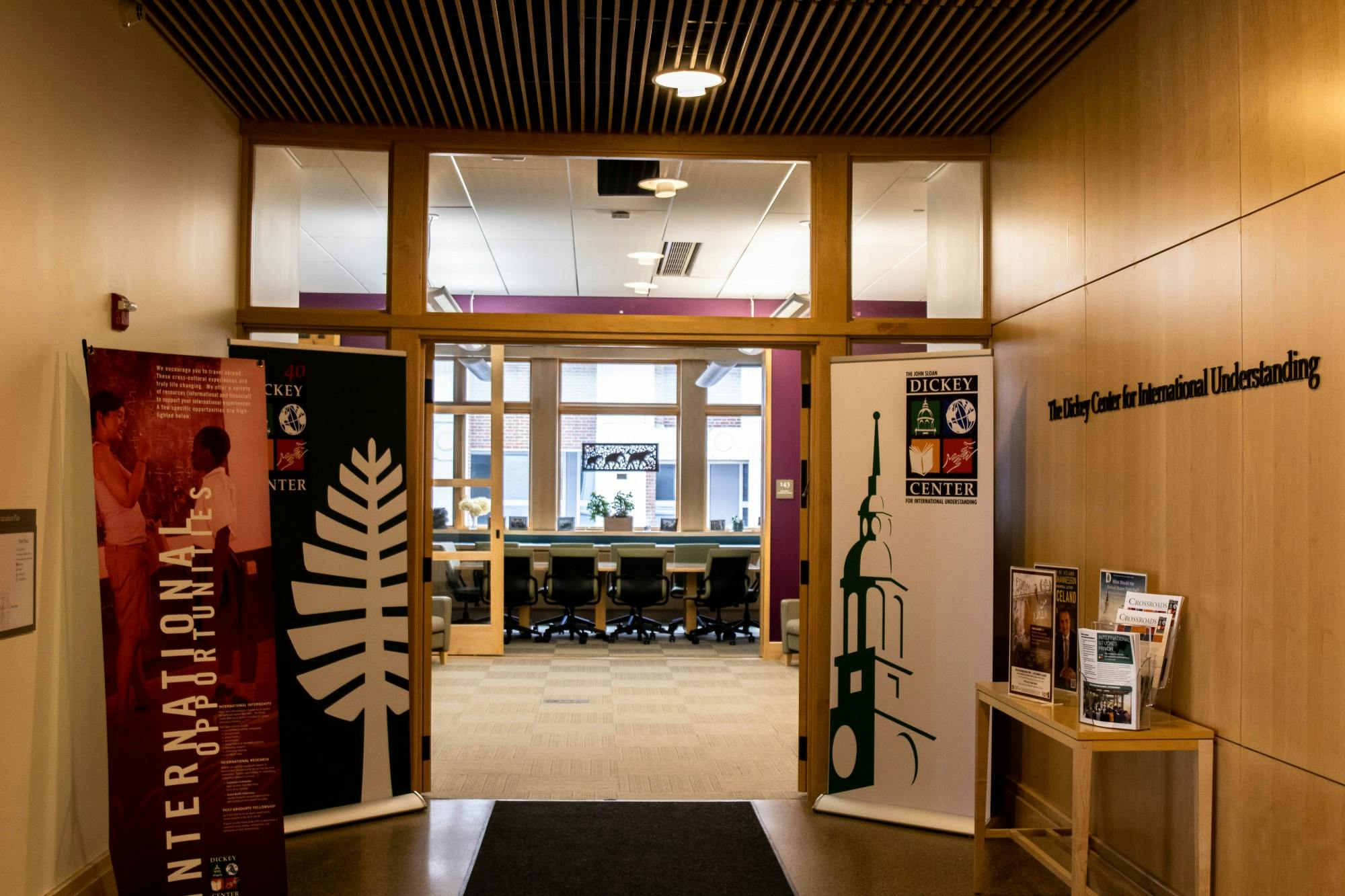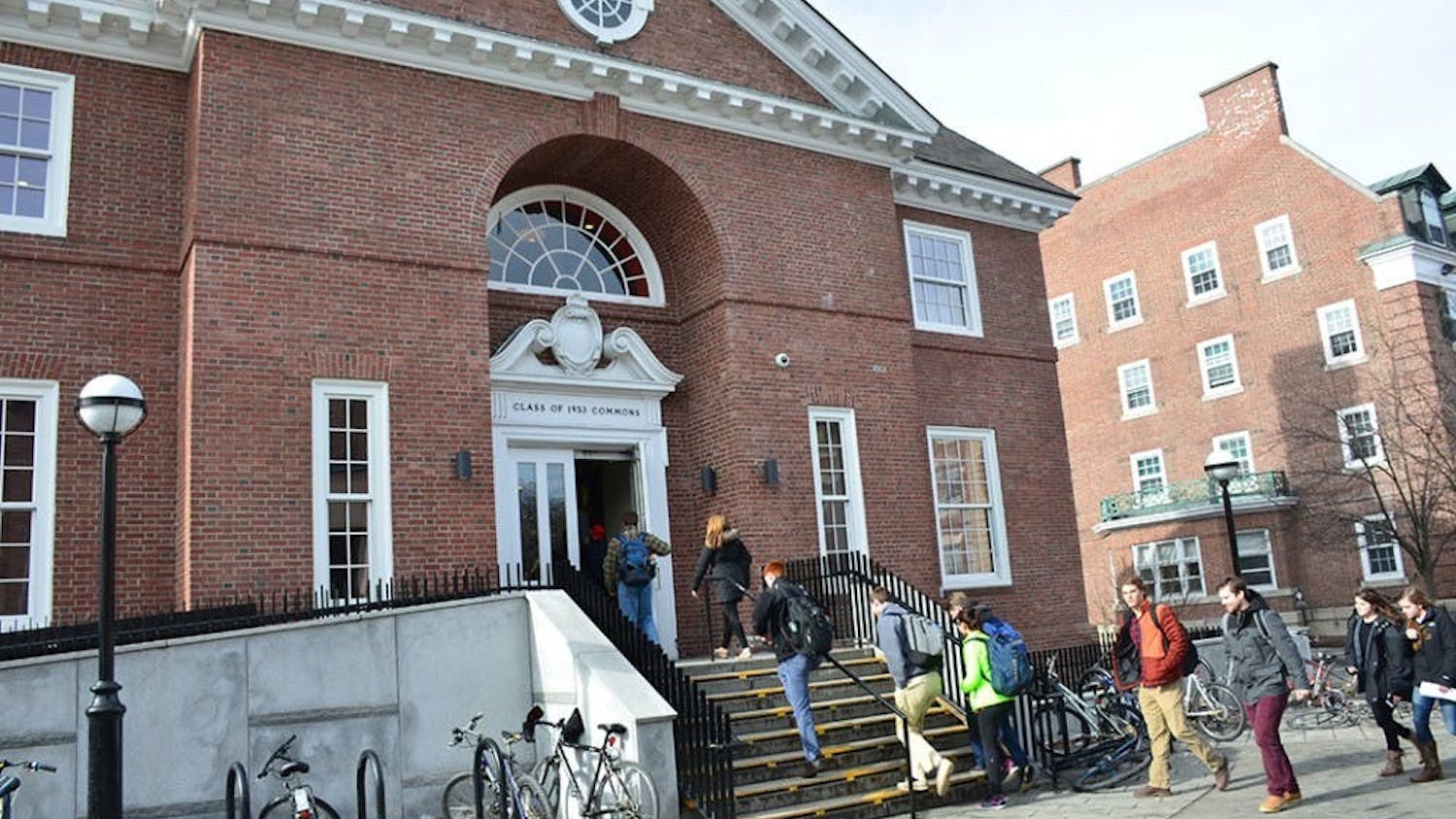On April 4, the Dickey Center for International Understanding and the Russian department hosted a guest lecture featuring Pavel Sulyandziga, a Russian Indigenous rights activist.
Sulyandziga shared anecdotes about his community — the Udege people of Siberia — and their struggle with corporations and the Russian government over land rights in the region. After his presentation, Sulyandziga answered questions from attendees about the role of Indigenous people in the Russo-Ukrainian War, as well as the impact of Putin’s regime on Indigenous groups.
Approximately 35 students and community members were present for the in-person event, Russian professor Tatiana Filimonova said. Filimonova delivered opening remarks for the event, and Varvara Korkina — a fellow at the Institute of Arctic Studies, an organization within the Dickey Center — translated as Sulyandziga delivered the lecture in Russian.
Sulyandziga prefaced his remarks by stating that his stories “won’t represent the whole of the experiences of Indigenous peoples in Russia,” but that his community’s experiences “are typical in Russia.”
The lecture began with an account of the Udege people’s struggle for their territory on the Bikin River. The Udege’s taiga — a forest landscape common in Russia — was first threatened in the 1970s by the Soviet gold mining industry, according to Sulyandziga. The deforestation of the taiga led to the assimilation of half of the Udege community, Sulyandziga said.
“There were no physical removals or genocides by the Soviet government,” Sulyandziga said. “Those four groups became extinct because the taiga was destroyed and they assimilated to survive.”
Sulyandziga added that the Udege people continued to fight for recognition after their land was sold to corporations. Sulyandziga said the Udege, assisted by environmental activists, reached an agreement in 2012 with President Vladimir Putin to guarantee the protection of the taiga from corporations. The agreement also established Udege lands as the Bikin National Park.
Sulyandziga noted the victory but also said that Putin’s motivations differed from those of the Udege.
“Putin started to promote himself as a defender of big cats and tigers,” he said. “The taiga is a land for tigers as well. If Putin had not liked tigers, he would not have protected our lands.”
After the lecture, Jack Flaggert ’26 said that he didn’t anticipate the impact of the Russo-Ukrainian conflict on Indigenous groups in Russia.
“The higher percentage of Indigenous men serving in Russia’s armed forces due to economic factors was really surprising,” he said.
The lecture then shifted to the Evenki people, a community of Indigenous people that reside in Central and Eastern Siberia, as well as Mongolia. According to Sulyandziga, the Evenki community was generally successful in retaining their autonomy and preserving their lands.
“The Evenki community is the only example of a self-sustaining community in Russia,” Sulyandziga said. “They had a successful business established in the 1990s and had good social and economic standing.”
However, the Evenki community’s autonomy made them targets of the local government, Sulyandziga said.
“They asked for land rights from the government to further protect themselves, and their appeal was denied,” Sulyandziga said. “Afterwards, there was a murder attempt on one of the members of the community.”
Sulyandziga said the short lived success story of the Evenki community was a more typical outcome for Indigenous communities in Russia. Unlike the success story of the Udege people, which received outside assistance, Sulyandziga said many Indigenous groups continue to suffer at the hands of the Russian government.
After approximately 50 minutes, the presentation transitioned to a Q&A between Sulyandziga and the audience. In response to a question about the Russo-Ukrainian war, Sulyandziga addressed the role of Indigenous people in the conflict.
“There is little-to-no resistance to [Russian recruiting],” Sulyandziga said. “When militarization began, Indigenous people in villages were an easy target. Because they face racism and prejudice in Russia, the war is an opportunity for them to earn money and make a place within the national identity.”
In an interview after the event, Beatrice Conti ’26 said that she “really appreciated” hearing Sulyandziga’s perspective.
“It was particularly interesting to look at how the only positive actions that Putin has undertaken were because of his own motivations and not from any institutional commitment to supporting Indigenous Siberians,” she said.



